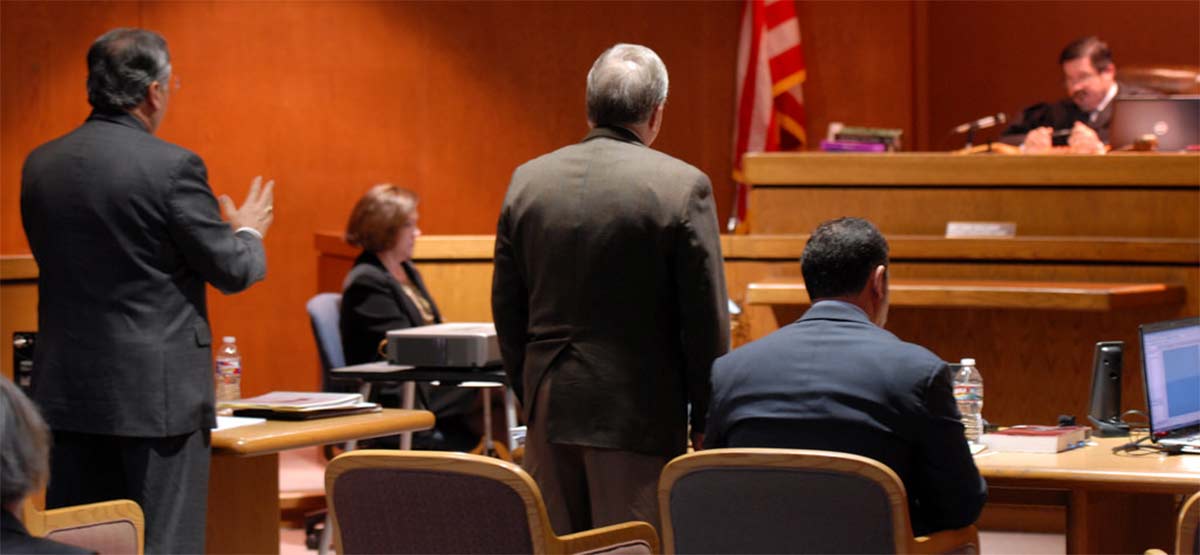The Felony Preliminary Examination is a Critical Stage in any Felony Prosecution
If the prosecution fails to show probable cause to believe a felony was committed and that the defendant is the offender, the district court judge must dismiss the charge.

The Felony Preliminary Examination
In our last blog post about the felony process, we examined arraignment and the probable cause conference (PCC). This blog focuses on the felony preliminary examination.
To recap – a felony prosecution must begin in district court to determine probable cause. If it passes that low threshold test, the case may be bound over to the circuit court for a new arraignment and pretrial conference. At the PCC, the judge will want to know the defendant’s wishes regarding holding or waiving the felony preliminary examination. If the defendant demands that the felony preliminary examination be held, the actual examination of witnesses will occur later at a different hearing. “Waiving” the exam means there will be no exam, and the case will be bound over to the circuit court immediately.
What is the Felony Preliminary Examination?
The preliminary examination, governed by Michigan Court Rule 6.110, is a procedural requirement of felony prosecutions. It requires the government to show probable cause that the accused defendant committed the crime. Put differently, “probable cause” exists if there is enough evidence that a jury could find the defendant guilty. This is not the same as guilt beyond a reasonable doubt, and losing at a felony preliminary examination does not imply that the defendant is guilty of the underlying charge(s).
The preliminary examination is conducted like a small trial or hearing before a district court judge. Both sides can introduce evidence, call witnesses, and cross-examine the witnesses called by the other side. At the conclusion, the judge decides if the prosecution produced enough evidence to show probable cause to believe the defendant committed a felony. If sufficient evidence exists, the case is “bound over” or sent to the County’s Circuit Court for further proceedings. If there was insufficient evidence, the judge dismisses the case.
Why Would I Hold It?
There are several reasons to hold a preliminary examination. Despite the low probable cause threshold, the government may have a weakness in its case and not survive the exam. Other reasons include finding out more about the government’s strategy, allowing known liars to put statements on the record that can later be used to impeach their credibility, and preserving any testimony of witnesses who may not be available at trial.
Why Would I Waive It?
A felony preliminary examination may be waived if holding it would not benefit the defendant. There is some danger that a witness will appear for the exam and not at trial. This is an issue if the testimony is later introduced at trial and defense counsel does not have a chance to cross-examine the person in the jury’s presence. Holding the preliminary examination may also decrease the chances that the prosecutor will offer a favorable plea later. In some cases, specifically, those involving the alleged abuse of children, a felony preliminary examination where the complainants must testify could cause the prosecutor to be less willing or less able to work out a lenient deal in the future.

Other Factors to Consider Regarding a Felony Preliminary Examination
Routinely, a felony case is scheduled for a felony preliminary examination at the probable cause conference if either party demands the examination. Seasoned criminal defense specialists, like the attorneys with LEWIS & DICKSTEIN, P.L.L.C., know how to use all the available tools to work out a deal for their clients. Sometimes an exam date is set while the prosecutor and defense counsel work together towards a deal. If the government’s case is especially strong, a smart defense attorney will use this time to convince the prosecutor that the defendant should be allowed to plead guilty to a misdemeanor rather than a felony.
The felony prosecution process is a daunting one. A conviction can result in jail time, fines, years of probation, and a lifetime of collateral consequences associated with being a felon. Before your case starts, you need a lawyer who knows the law, the prosecutor, and the court. The attorneys at LEWIS & DICKSTEIN, P.L.L.C. have decades of experience handling felonies in Oakland County, Macomb County, Wayne County, and throughout Michigan. They know when the prosecution should be compelled to hold a felony preliminary examination when it is not beneficial to the client, and all the details that must be considered throughout a felony prosecution. The best way to handle a felony charge is to begin the process with an experienced legal team in your corner, protecting your rights and guiding you through the complicated process that begins with the arraignment and probable cause conference.
Call us today at (248) 263-6800 for a free consultation or complete an online Request for Assistance Form. We will contact you promptly and find a way to help you.












